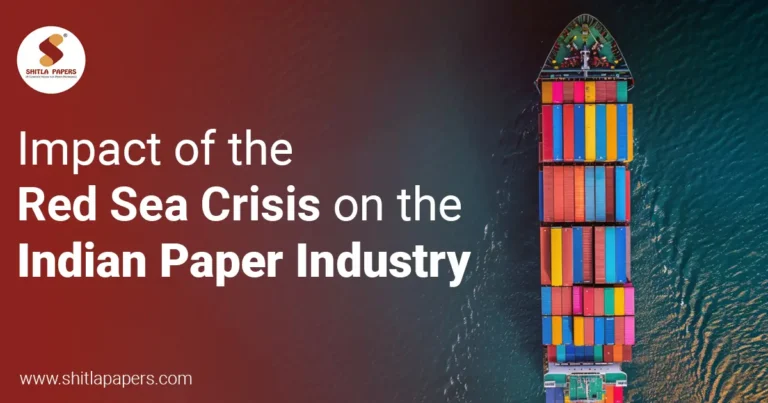
Introduction
In today’s environmentally conscious world, the choice between paper bags and plastic bags has become a topic of great significance. Many people are questioning the environmental impact of their everyday choices, and one such choice is whether to use paper bags or plastic bags. In this article, we will explore why paper bags are better than plastic and why they are considered a sustainable choice. By understanding the environmental benefits and advantages they offer, we can make informed decisions that align with our commitment to a greener future.
The Environmental Impact of Plastic Bags: Why Paper Bags Are Better Than Plastic
Plastic bags have become ubiquitous in our society, but their convenience comes at a considerable cost to the environment. Here are some key reasons why plastic bags pose a significant threat:
1. Non-Biodegradability
Plastic bags are made from synthetic materials that do not biodegrade naturally. Instead, they break down into smaller microplastics that persist in the environment for hundreds of years. These microplastics contaminate soil, water bodies, and wildlife, leading to severe ecological damage.
2. Harm to Marine Life
Plastic bags often end up in the oceans, where they pose a severe threat to marine life. This is Why Paper Bags Are Better Than Plastic. Marine animals mistake plastic bags for food or become entangled in them, causing injuries and fatalities. Additionally, the ingestion of microplastics by marine organisms can disrupt entire ecosystems and harm biodiversity. By choosing paper bags over plastic bags, we can help mitigate these harmful effects and protect marine life and the delicate balance of our oceans.
3. Energy Consumption and Carbon Emissions
When considering Why Paper Bags Are Better Than Plastic, it’s essential to examine the environmental impact of their production. The production of plastic bags requires significant amounts of fossil fuels, contributing to carbon emissions and climate change. This dependency on non-renewable resources further exacerbates environmental problems and threatens the planet’s delicate balance.
The Benefits of Paper Bags
In contrast to plastic bags, Why Paper Bags Are Better Than Plastic, paper bags offer a more sustainable alternative that aligns with our environmental goals. Let’s delve into the advantages of paper bags:
1. Renewable and Biodegradable
Paper bags are a sustainable and environmentally friendly alternative to plastic bags. Why Paper Bags Are Better Than Plastic? Well, for starters, paper bags are made from a renewable resource—trees. Sustainable forestry practices ensure that new trees are planted to replace those used in production. This makes paper bags a more sustainable choice in the long run.
2. Lower Energy Consumption
The production of paper bags consumes less energy compared to plastic bags, which is Why Paper Bags Are Better Than Plastic. Paper bag manufacturing processes have evolved to be more energy-efficient, reducing the overall carbon footprint. This makes paper bags a greener choice, contributing to the conservation of energy resources.
3. Recyclability and Reusability
Paper bags are easily recyclable, and the recycled fibers can be used to produce new bags or other paper products. Recycling paper bags helps conserve valuable resources, reduces landfill waste, and minimizes the need for virgin materials. Furthermore, paper bags can be reused multiple times before recycling, adding to their sustainability.
Transitioning to Paper Bags: Overcoming Challenges
While the benefits of paper bags are clear, Why Paper Bags Are Better Than Plastic, transitioning from plastic bags to paper bags does present some challenges. Here are a few considerations:
1. Cost and Affordability
Paper bags can be more expensive to produce than plastic bags, which is a common concern when considering Why Paper Bags Are Better Than Plastic. This cost difference is often passed on to consumers, making paper bags seem less affordable. However, with increased demand and advancements in production technology, the price gap is gradually narrowing. As more businesses and consumers recognize the environmental benefits of paper bags, economies of scale and improved manufacturing processes are making paper bags a more cost-effective and accessible option.
2. Durability and Strength
When comparing Why Paper Bags Are Better Than Plastic, it’s important to consider their strength. While traditional paper bags may not match the immediate strength of plastic bags, advancements in paper bag manufacturing have led to the development of stronger variants capable of carrying heavier loads. These robust and tear-resistant paper bags offer a reliable and environmentally friendly alternative to plastic bags.
Conclusion
When considering Why Paper Bags Are Better Than Plastic, the environmental impact and long-term sustainability are key factors to examine. It becomes evident that paper bags are a superior choice compared to plastic bags in this regard. Their renewable nature, biodegradability, recyclability, and lower energy consumption make them a more environmentally friendly option. By opting for paper bags, we can reduce our reliance on non-renewable resources and minimize waste accumulation.
Frequently Asked Questions
1. Are paper bags more expensive than plastic bags?
Initially, paper bags may have a higher cost compared to plastic bags. However, with advancements in production technology and increased demand, the price difference is becoming less significant.
2. Can paper bags carry heavy items without tearing?
Traditional paper bags may not be as sturdy as plastic bags when it comes to carrying heavy loads. However, newer variants of paper bags have been developed to be stronger and more durable, capable of carrying heavier items.
3. How long does it take for a paper bag to decompose?
Under normal conditions, a paper bag takes approximately two to five months to decompose naturally. This is significantly shorter compared to the hundreds of years that plastic bags take to break down.
4. Can paper bags be recycled?
Yes, paper bags are highly recyclable. The fibers from recycled paper bags can be used to produce new bags or other paper products, reducing the need for virgin materials.
5. Are paper bags more sustainable than reusable cloth bags?
Both paper bags and reusable cloth bags have their advantages. Paper bags are renewable, biodegradable, and recyclable, while cloth bags are durable and can be used repeatedly. Choosing between them depends on factors such as personal preference, intended use, and local recycling facilities.





